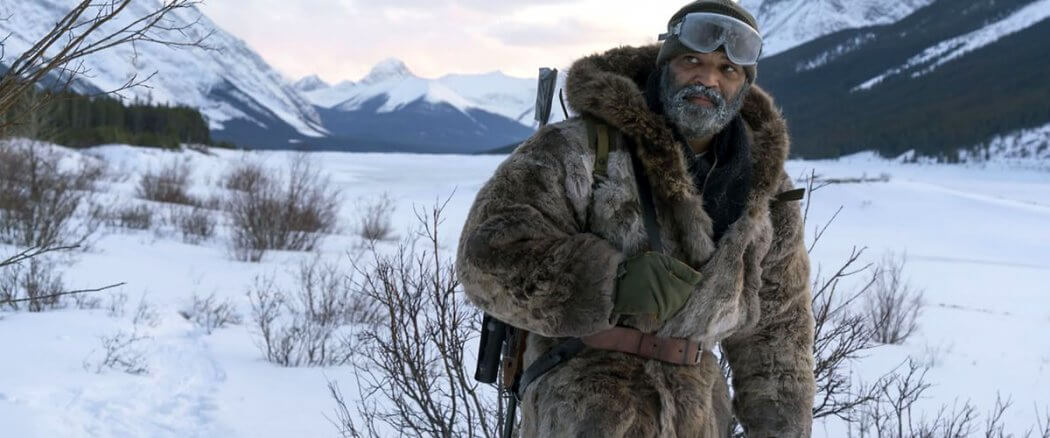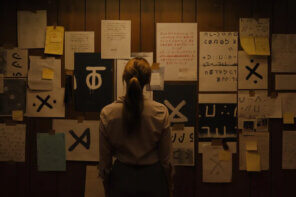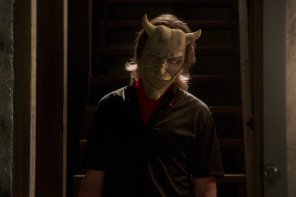When critics of all stripes – film, TV, video games, music – write about art that is hard to pin down aesthetically, you’ll often see them use a specific word: dreamlike. Nightmarish if it skews darker.
Dreams are an especially apt grounding point for movies because of the way they’re both constructed. There’s a separation from reality that somehow feels very real. While some people are active participants in their dreams, many are merely observers. They watch the narrative – nonsensical as it may be – unfold in “real” time.
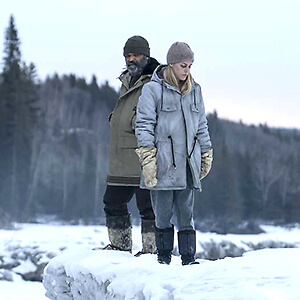
The only difference – and it’s a big one – is that the effects of that narrative can feel very real. So when you read a critic who describes something as, “dream-like,” or, “nightmarish,” there might be more to it than just the cinematography, scoring or spaced-out story structure. It may be that what you’re consuming doesn’t seem grounded in what we know as, “real,” but carries intensely felt effects.
And so it is with Netflix’s latest foray into original film, Jeremy Saulnier’s Hold the Dark, which substitutes monsters and serial killers with wolves and ordinary people, asking us if and when we’re able to spot the very real horrors that may lurk just beneath the veneer of everything we see.
Set in remote Alaska, Hold the Dark centers around the dual journey of two very different men. Russell Core (Jeffrey Wright), is a retired naturalist, writer and wolf expert who gets a call from Medora Slone (Riley Keough). Medora tells Core that her son has been taken by wolves. She doesn’t expect to find him alive, but her husband will eventually be home from war: she wants him to be able to see the wolf who killed their boy. Core agrees, somewhat reluctantly, and soon finds himself in the company of a woman and a town who seem to have faded into the shadows of the surrounding forests.
Meanwhile, we’re introduced to Medora’s husband, Vernon Slone (Alexander Skarsgård). Not much can be said about Vernon without spoiling the second and third acts. But, suffice to say, Vernon seems a little… off. There’s a quiet intensity to him that appears something beyond antisocial. One character later in the film goes as far as to call it, “unnatural.” When chaos erupts where he’s stationed in Iraq, Vernon is sent home to Alaska, where some shocking news awaits him.
“What’s outside those windows, it gets in you.”
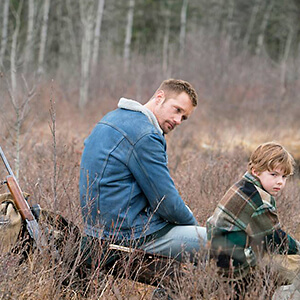 While Core takes a noticeably bigger role in the narrative, it’s pretty tough to separate his and Vernon’s journeys. They represent two sides of the, “Man vs. Nature,” coin, each reacting to their stimuli in categorically different ways. It’s up to the viewer to assign sympathy where they find it due, but but Saulnier makes one a very clear audience stand in, marking clear moral territory. At the center of this push-and-pull between the two is the basic question you would find in any competent sci-fi – “What does it mean to be human?” But Saulnier, master of tension and release, pounds that question to its basest levels, rendering it something like, “What does it look like to stop being human?”
While Core takes a noticeably bigger role in the narrative, it’s pretty tough to separate his and Vernon’s journeys. They represent two sides of the, “Man vs. Nature,” coin, each reacting to their stimuli in categorically different ways. It’s up to the viewer to assign sympathy where they find it due, but but Saulnier makes one a very clear audience stand in, marking clear moral territory. At the center of this push-and-pull between the two is the basic question you would find in any competent sci-fi – “What does it mean to be human?” But Saulnier, master of tension and release, pounds that question to its basest levels, rendering it something like, “What does it look like to stop being human?”
The answers aren’t easily earned – some may say they’re too obscure. But Hold the Dark doesn’t seem as interested in telling us what to believe as it does bringing morality to the surface, where an ambiguous ending lays feelings bare.
And Saulnier the storyteller doesn’t hesitate to top himself as Saulnier the technician. Like great thriller/horror directors before him, he understands that the thrill of an inevitable evil is the patience the director shows. When we know the bad guy is on his way, the moments directly before become a playground of space and sound, and Saulnier exhibits masterful restraint. Well, aside from the one scene.
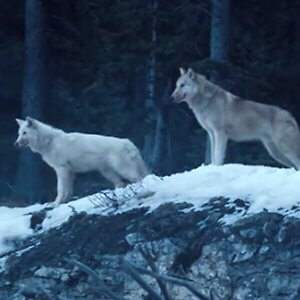
There’s one scene in Hold the Dark that, while I won’t spoil, acts as the hare to the film’s brutal tortoise-like tendencies. Over the course of two hours, Saulnier makes us wait as he takes us at a snail’s pace. But then one scene (almost literally) explodes, rendering humanity as an afterthought and jump scares as something far less dreadful than unadulterated malice. It’s a cathartic thesis statement plopped right at the film’s midway point. It would stand out like a sore thumb if not for the way it leads the viewer forward, assuring them, “That was it. The worst is over.” If only.
The complete vision of Hold the Dark is not complete without its trio – and you could argue quartet – of excellent performances. Jeffrey Wright is a perfect vehicle for the film’s horrified, mournful look at the evil of the world. Julian Black Antelope makes a breakthrough performance as the center of “righteous anger,” somewhat redeeming a smattering of Native American threads that don’t really work. And Riley Keough, in a limited turn, continues her run of parts that are hard to pin down while remaining magnetic.
But Alexander Skarsgård wins out as the film’s true star, a leering, purely physical execution that fits well alongside a horror icon that popped on screen 50 years ago: Michael Myers. That’s not to say he’s instantly iconic, but he is reminiscent of the imposing brute force that Myers represented. Skarsgård glides around the screen with a singular determination almost directly communicated through his eyes. It’s not quite skin-crawling as Carpenter’s devilish creation, but there’s a horrible truth at the center, one that sticks after the credits roll.
“The behavioral term is savaging.”
 All of this adds up to a film that, ultimately, is concerned with worldview, or at least with the concept of differing worldviews. It’s a question that can be asked in a multitude of ways, but Saulnier’s choices tear away at nuance, presenting us with a question that cuts right to the core of humanity’s collective moral conscience: “Who are we in the face of inevitable evil?”
All of this adds up to a film that, ultimately, is concerned with worldview, or at least with the concept of differing worldviews. It’s a question that can be asked in a multitude of ways, but Saulnier’s choices tear away at nuance, presenting us with a question that cuts right to the core of humanity’s collective moral conscience: “Who are we in the face of inevitable evil?”
Saulnier rightly frames this is a debate with two sides, and his thoughts are betrayed by his character’s choices. But he’s never imposing or judgmental, a tactic that makes the viewer response extremely personal – and maybe even scarier depending on which side you fall. Hold the Dark retains its humanity in the end – a choice that somewhat neuters it of its power – but remains firm in its conviction.

